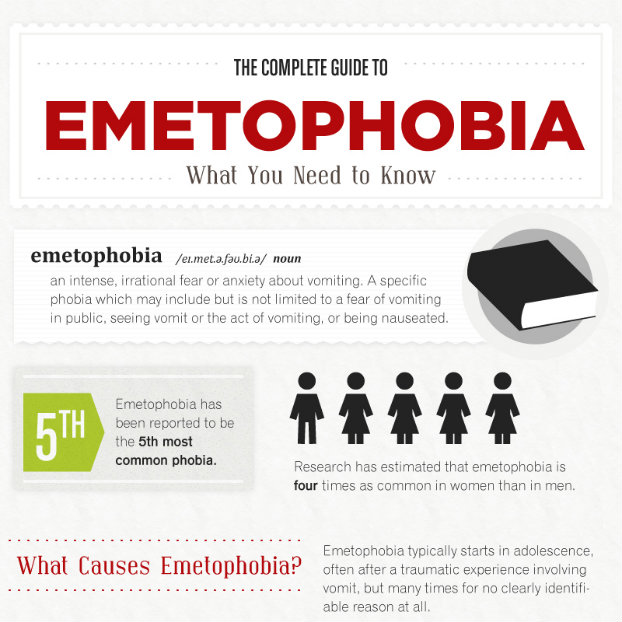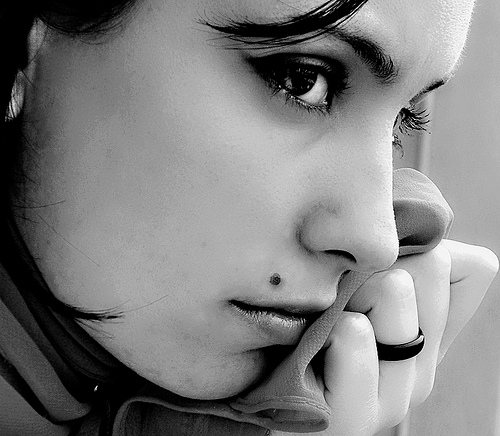 The MedTerms Web site defines emetophobia as “an abnormal and persistent fear of vomiting.” A person who has emetophobia feels worried that he or she will be physically sick, especially in front of other people.
The MedTerms Web site defines emetophobia as “an abnormal and persistent fear of vomiting.” A person who has emetophobia feels worried that he or she will be physically sick, especially in front of other people.
For some people with emetophobia, the fear is more about the embarrassment or shame of vomiting in front of others. For other sufferers of emetophobia, the fear is more about the act of vomiting itself; they find it painful and/or frightening. Both groups of people try to avoid situations that they believe can make them ill. This often means avoiding things such as: drinking alcohol; going to amusement parks or to large gatherings; visiting hospitals; taking medications (because of the potential side effects); traveling by boat, plane or train (or taking a road trip in the car). Some people with emetophobia even go so far as to avoid being around small children, who tend to get ill more often than adults do.
Emetophobia can have different effects on different age groups. For children who have the anxiety disorder, emetophobia can cause avoidance of peer activities like playing and going to sleepovers and difficulties concentrating at school. It can also cause food refusal, during which a child will not eat a variety of foods for fear of vomiting. In teenagers and in adults, the effects can include things like trouble focusing at work or school (because of being distracted by anxiety related to vomiting) and embarrassment about their condition. Having emetophobia can be a point of shame for some people, who feel worried about what their friends or family might judge them for their fear and avoidant behaviors.
A young lady in the UK describes her lifelong struggle with emetophobia in a brief, personal piece. She discusses how the disorder affected her as a child and how her parents reacted to the behaviors related to it. She also talks about how having emetophobia affected her social life as a young adult.
Cognitive-behavioral therapy (CBT) and medication have helped the young woman to feel less anxious and to enjoy a better quality of life. She still struggles with some issues, but overall her emetophobia has improved, and she has a support system of friends and family who help her to stay positive. This is why people with emetophobia should not resign themselves to suffer in silence. Seeking professional help from a licensed mental health worker is a good option for people who have emetophobia or any other anxiety disorder.
Photo Credit: ‘Ajnagraphy’ via Compfight cc





